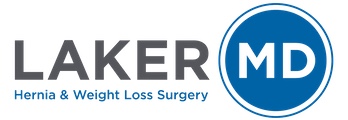Bariatric: Will my insurance cover the procedure?
In general, most insurance companies provide coverage for bariatric surgery. However, individual policies may have exclusions to some or all bariatric procedures. You will be assisted in the process insurance coverage verification.
Bariatric: I’m interested in bariatric surgery. Where do I start?
The decision to have bariatric surgery is one of the biggest decisions any person can make. Education is paramount to patient success. The process begins with attendance to an informational seminar. The seminar provides information related to the procedures performed. Information on pre and post operative instructions as well as dietary guidelines is also discussed in detail.
Bariatric: Can I continue to take birth control pills?
Oral Contraceptive Pills (OCP) increase the potential for venous thrombosis (blood clots). You will be asked to discontinue any OCP two months prior to the procedure and not restart for at least 3 months. Using precautions to prevent pregnancy is strongly recommended for the 18 months after surgery.
Bariatric: When can I try to get pregnant?
It is strongly advised to avoid pregnancy during the first 18 months after surgery. During this time period there is rapid weight loss and profound metabolic changes. The potential for malnutrition may place the fetus at risk. Weight loss and bariatric surgery have been demonstrated to improve fertility and it is very important that precautions be taken to avoid pregnancy.
Bariatric: When can I return to work?
Return time to work depends on a several things. The bariatric procedure performed, a patient’s age and medical/surgical history all play a role in recovery. In addition, a patient’s job, comfort level and ability to take time off affect return to work. In general, the majority of gastric bypass and sleeve gastrectomy patients return to work in 2-4 weeks. Band patients generally are OK to work after 1 week.
Bariatric: What is my diet after surgery?
Detailed pre and post operative dietary instructions will be provided at the seminar, office visits, in the hospital and during post operative visits.
In general post operative bariatric patients are moved from clear liquids to regular food items over a period of 3-4 weeks. The progression is clear liquids -> thickened liquids (baby food, creamy soups) -> soft foods (mash potatoes, fish) -> regular foods.
Bariatric: It is highly recommended that nutritional supplements be taken post operatively.
- Multivitamin twice a day
- adult multivitamin preferred (ie Centrum)
- Calcium with Vitamin D three times a day
- calcium citrate preferred 1500 to 2000 mg a day
- Iron once a day
- 325 mg of an iron salt (equivalent to 65mg of elemental iron)
- Vitamin B12 once a day
- containing at least 350 mcg of Vitamin B12 (sublingual preferred).
- Vitamin D (D2 or D3) 50,000 IU once a week
- available over the counter
Bariatric: Will I need blood work after surgery?
Laboratory studies are required at 3 months, 6 months, 12 months and annually thereafter following gastric bypass and sleeve gastrectomy to identify any nutritional issues that require further treatment.
Recommended lab studies:
CBC, electrolytes, glucose, liver function, iron studies, ferritin, Vit B12, 25-Hydroxyvitamin D, Intact PTH, Lipid profile, HgbA1c.
Bariatric: When can I start exercising?
Most individuals will feel well enough to start exercising 2-3 weeks after surgery. Never exceed your comfort level as you begin to become active. Slowly advance activity over a period of 4 weeks.
Bariatric: What is the follow up schedule?
Return visits depend on the procedure. In general, gastric bypass and sleeve patients will be seen 1-2 weeks after surgery, 6 weeks, 3 months, 6-9 months and then at 1 year. Annual evaluations are recommended thereafter.
Lap band patients are seen at 1-2 weeks after surgery, 6 weeks and then every 4-8 weeks for potential adjustments.
Bariatric: Why do I need to keep and diet and exercise journal?
Keeping a diet and exercise diary is an outstanding way to gain insight into one’s habits. Insight has a tremendous ability to lead to change. Maintaining a journal is a good platform for discussion of eating and exercising habits during follow up visits.
Hernia: When can I return to work?
Return to work is dependent on the type of hernia and repair. Additional factors such as age, previous medical/surgical history and overall physical condition play a major role in recovery and return to work.
Hernia: What are my restrictions?
Activity is dependent on the type of hernia and repair. Additional factors such as age, previous medical/surgical history and overall physical condition play a major role in recovery and activity level. In general after laparoscopic hernia repairs patients will be able to use stairs, walk and handle items <15 lbs the day of surgery. Activity will be increased around 3-4. In some cases full activity without limitations can resume at 3-4 weeks.
Hernia: When is a hernia an emergency?
Increasing pain, abdominal distension, nausea/vomiting, fevers/chills or inability to pass gas or have a bowel movement are worrisome signs. An incarcerated hernia is considered a surgical emergency and you need to call your doctor or proceed to the nearest emergency room.
Gallbladder: Do I have to change my diet after surgery?
After surgery the recommendation is to stay on a low fat/low oil diet for 3-4 weeks. The diet should initially be bland and slowly advanced over a period of 3-7 days. It is not uncommon for patients to have a small appetite and minimal desire to eat. It is very important to maintain hydration and 64 ounces of water are recommended each day. Generally, a regular heart healthy diet can be resumed in 4-6 weeks.
